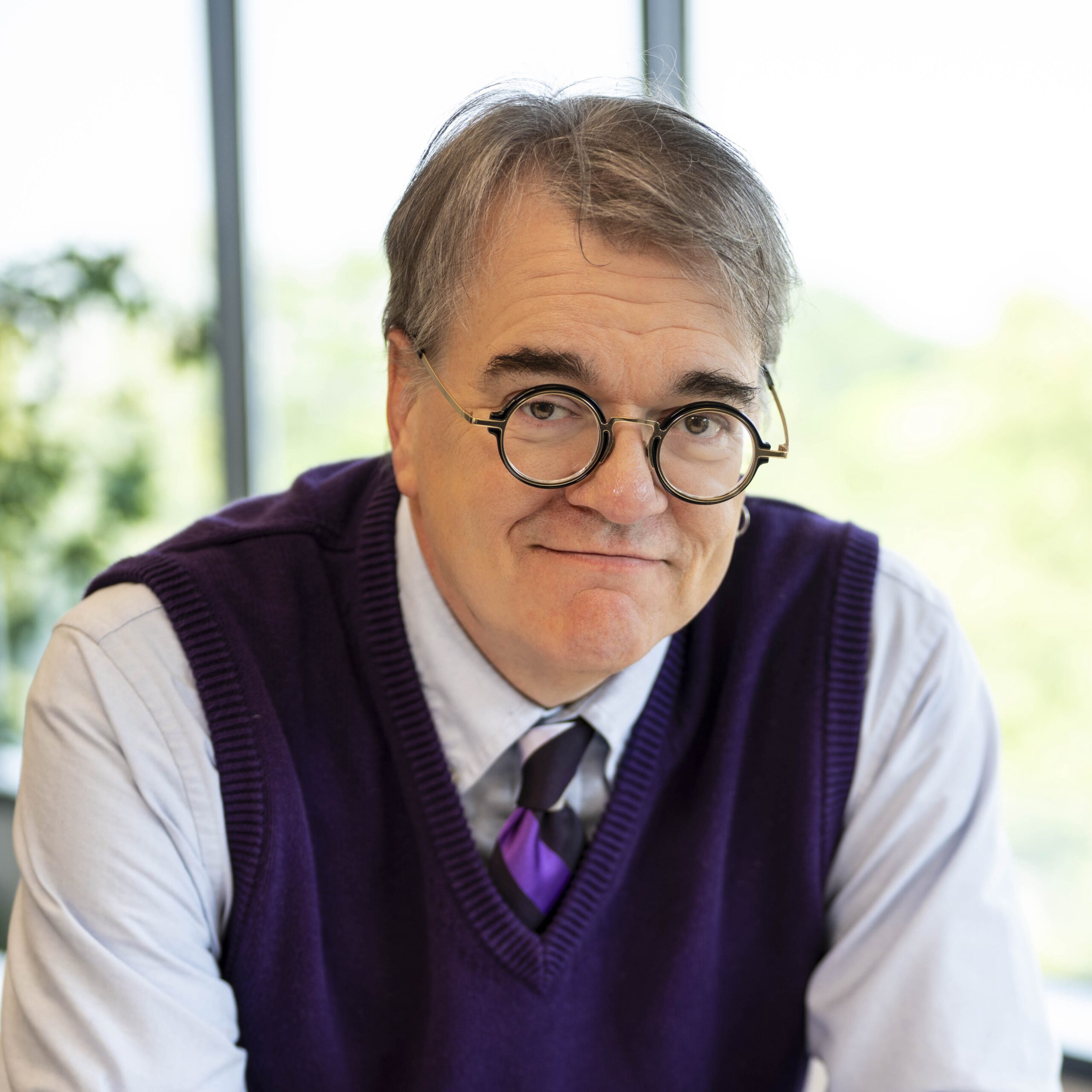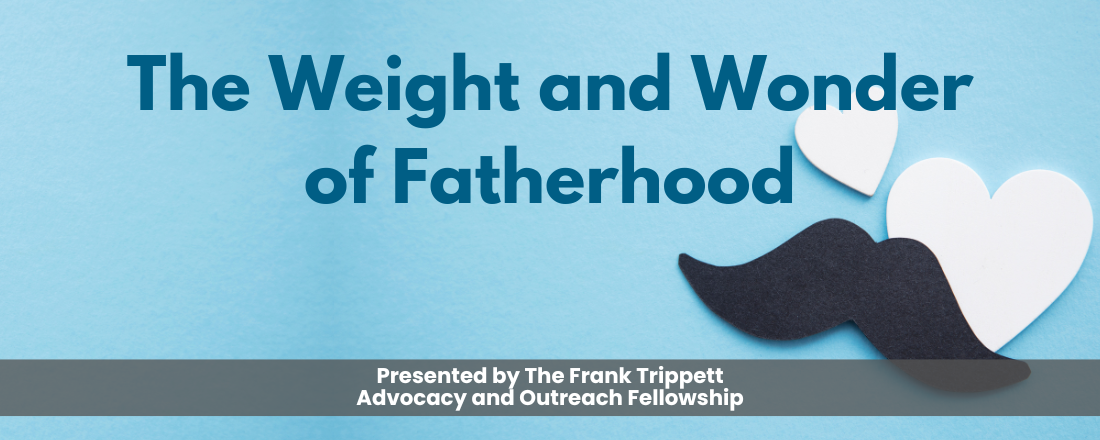
Rob Hudson is a Frank Trippett Advocacy and Outreach Fellow, and Digital Communications Manager for The Arc of Northern Virginia. Rob’s advocacy on behalf of his daughter, Schuyler, who has a rare disorder called polymicrogyria, has guided his personal philosophy for the past twenty years.
The Weight and Wonder of Fatherhood
Father’s Day 2025 has come and gone. As a dad myself, and I don’t mean to sound like a whiner, but that usually means settling in for another year of limited visibility. Our society has a strong narrative about mothers. While it’s often unfair and adds a lot of pressure to the lives of moms who are busy enough as it is, we nevertheless talk about motherhood in terms that are ever present.
Fathers are often relegated to a kind of “and that guy’s hanging around a lot, too” vibe. The absent dad has been a trope in our culture for the past century. (Dad’s off fighting the Germans, now he’s in the office with Don Draper, now he has weekend custody, etc.) In recent years, that narrative has relaxed, and we’ve been given a blank slate by society. Fatherhood has become what we make of it.
I don’t want to sound like a complainer, because I think for most of us dads, we’re pretty okay with that. I don’t think very many of us are out here wishing we got more attention for our efforts at fathering. Mostly we do what we do, and if a goofy t-shirt and a meat-centered lunch date on Father’s Day is our reward once a year, that’s more than enough. We’re good with the way things are.
For fathers of kids with disabilities, it can be more complicated.
One of the narratives that has been persistent, at least to my mind, has been that of the special needs mother and the epic, life-changing work that she does. It’s persistent because it’s true, I hasten to add. All the expectations that society already heaps onto the shoulders of mothers is still present for those moms with kids with disabilities, of course, but that’s just the beginning. I’ll never say a word against special needs moms and the reputation they get for their commitment.
At the same time, though, there’s a recurring narrative that these moms are largely doing this work on their own, and that dads aren’t always a part of the equation. New research is beginning to show that the reality may be much more nuanced than previous studies have suggested. A literature review by Disability Studies Quarterly drilled down a little more comprehensively. One part stood out to me:
“Although fathers reveal vulnerability, fear and ambivalence, we find that fathers emphasize the positive aspects of their relationships. […] There is a sense of gratitude hidden in the literature, a recognition of learning from the child, about fathering and becoming a better father. Fathers emphasize the strengths of the child, valuing personal characteristics and attributes, embracing their children’s difference and having hopes and expectations for the future. There are few studies providing a sense of everyday father-child interactions but those that do suggest fun, laughter and physical interaction.”
I particularly appreciate the mention of fun, laughter and play. That’s certainly true of my daughter and our lives together for the last twenty-five years. A lifetime, and the blink of an eye.
I’m not a huge believer in inherent gender-specific roles, particularly in parenting situations, but I do recognize certain trends that I have seen in my own behaviors through the years. Perhaps I’ve been programmed by society more deeply than I’d like to admit. I know that for myself and for many of the fathers I’ve met over the years, when presented with a diagnosis and a map of what the future should look like, our impulse has been to try to somehow fix things.
For me, it was working hard to provide my daughter with assistive technology options to help her successfully communicate. That obviously turned out to be a very good thing. I’ll accept some kudos for that. But in my drive to provide her with a voice that would bridge the gap between what she was given and what she needed, I missed some important things. Assistive speech technology didn’t give her a voice that she didn’t have. I didn’t “fix” the problem. Assistive tech gave her options; it provided something new and powerful to put in her toolbox. It gave her adaptations within the context of her disability, a state of neurology that never needed to be “fixed” in the first place. I got it mostly right, I guess, but I also kind of missed the point, and that’s on me.
I’ve gotten a lot of things wrong over the years, and I’ve learned a great deal, but of course I still have much more to figure out. I’ve consistently said that there are two things I’ll always give my daughter: love and the truth. I’ve stumbled on that second part a few times, I know, but hopefully not on the first. To me, the most critical thing I think I offer her is that no matter how difficult the situation or how badly I screw things up, I’ll always be there. I’ll always come back for more. No absenteeism for this dad.
That’s the thing, though. I know my sample size might be narrow and of dubious representation, but the special needs dads I know are the same. They show up, every time. And I know a lot of them. I’ve met them over the years, some of them working professionally towards tech solutions, others as strong partners or even single dads. If you look at the Board here at The Arc of Northern Virginia, you’ll see some of the most dedicated fathers you could ever hope to meet. The namesake of the fellowship I work under was himself a remarkable and dedicated father advocate. We’re out there, embracing a breadth of roles from advocacy to playmate to protector. The narrative of the useless Homer Simpson dad is wrong.
As we move forward into increased advocacy needs and uncertain times for the disability community, I feel more energized than ever to take up this fight, and also more relieved than ever that there will be other parents, other dedicated fathers as well and mothers, who will be standing with me against the hurricane. To my fellow fathers, I say simply this: You are seen, and you are needed. I must remember those things myself, too.



